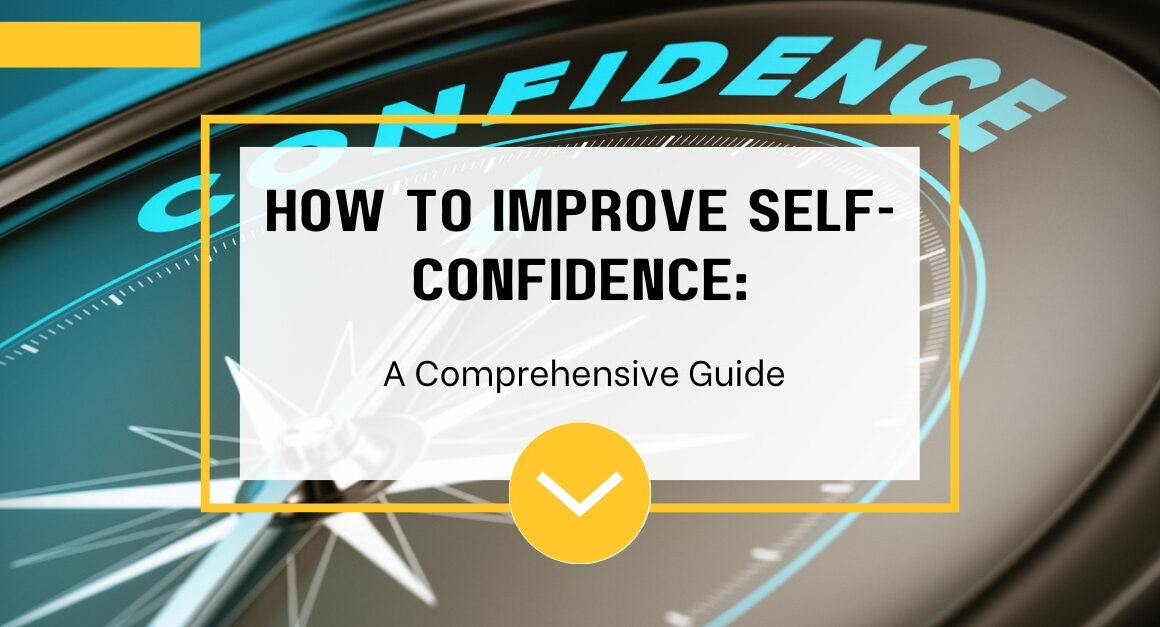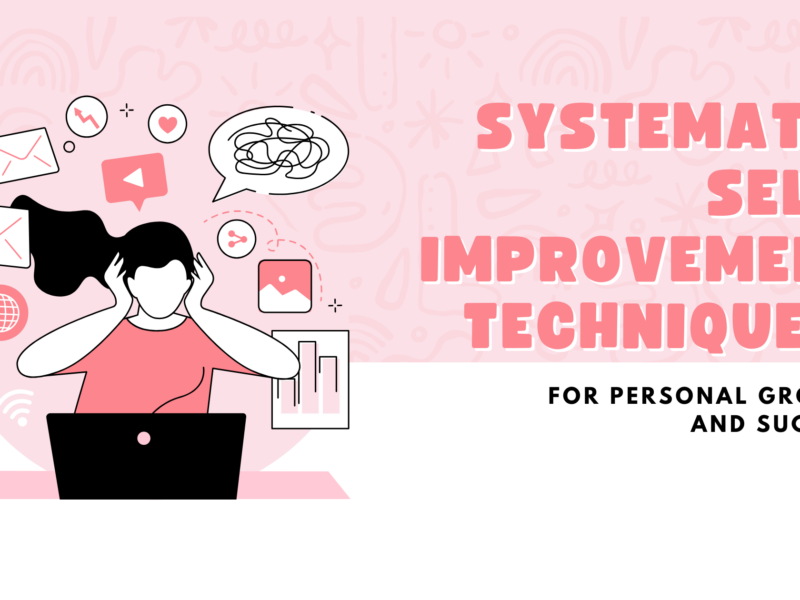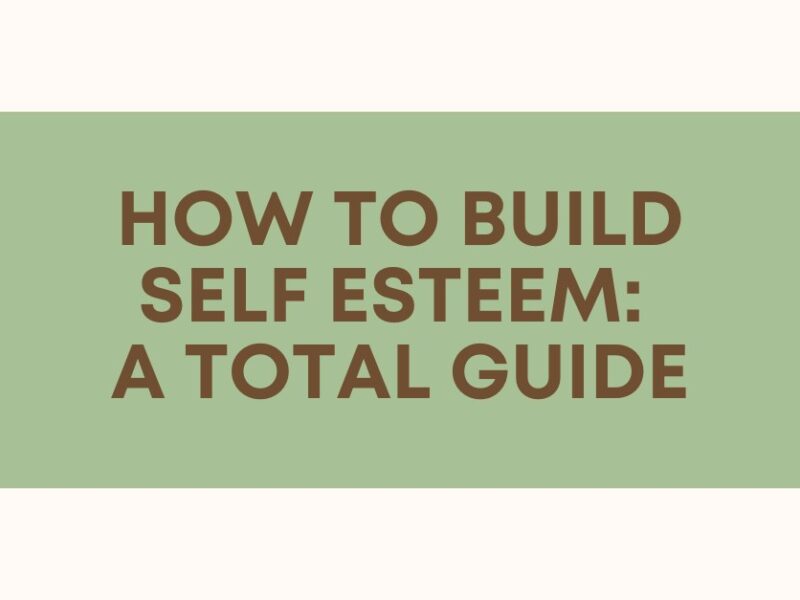How to Improve Self-Confidence? Self-confidence plays a vital role in both personal and professional success, shaping the way we perceive ourselves, interact with others, and tackle challenges. It influences our decision-making, resilience, and ability to pursue goals. When we feel confident, we are more likely to take risks, embrace new opportunities, and maintain a positive outlook on life.
Many people struggle with low self-esteem, which can hold them back from reaching their full potential. Doubting oneself, fearing failure, or constantly comparing oneself to others can lead to self-doubt and hesitation. However, self-confidence is not an innate trait—it is a skill that can be developed and strengthened over time. By implementing the right strategies and mindset shifts, anyone can boost their self-assurance and navigate life with greater ease.
Building self-confidence begins with self-awareness. Understanding your strengths, acknowledging your achievements, and setting realistic goals can help foster a sense of self-worth. Additionally, practicing positive self-talk, stepping out of your comfort zone, and focusing on personal growth are essential steps in enhancing confidence. Surrounding yourself with supportive individuals who encourage and uplift you can also have a significant impact on your self-belief.
In this guide, we will explore the concept of self-confidence in depth, discussing practical ways to develop and sustain it. From daily habits that promote self-assurance to effective techniques for overcoming self-doubt, this resource will provide valuable insights into building lasting confidence. Whether you are looking to improve your public speaking skills, enhance your professional presence, or simply feel more comfortable in your own skin, this guide will equip you with the tools you need to succeed.
By implementing these strategies, you can cultivate a strong sense of self-confidence that will empower you to take on new challenges, form meaningful relationships, and achieve your goals. No matter where you are in your journey, developing confidence is a lifelong process that can lead to a more fulfilling and rewarding life.
What Is Self-Confidence?
Self-confidence is the belief in one’s abilities, decisions, and capacity to handle life’s challenges. It does not mean being perfect or never making mistakes; rather, it is about trusting yourself enough to take action, learn from experiences, and keep moving forward. A confident person embraces opportunities, faces obstacles with resilience, and maintains a positive outlook, even in uncertain situations.
Several factors shape self-confidence, including past experiences, personal achievements, and feedback from others. Positive experiences, such as accomplishing goals or receiving encouragement, reinforce confidence, while setbacks or criticism can sometimes lead to self-doubt. However, confidence is not fixed—it can be nurtured and strengthened through consistent effort and a growth-oriented mindset.
The Difference Between Self-Esteem and Self-Confidence
While self-confidence and self-esteem are related, they are not the same:
- Self-Esteem: This is a broader concept that reflects how much you value yourself as a person. It is tied to your sense of self-worth, independent of external achievements or validation. High self-esteem means feeling inherently worthy and deserving of respect and happiness.
- Self-Confidence: This is more specific and relates to trusting your ability to perform tasks, solve problems, and make decisions. It is often built through experiences, skill development, and overcoming challenges.
For example, someone may have high self-esteem, feeling good about themselves overall, yet struggle with self-confidence in certain areas, such as public speaking or leadership. Conversely, a person may be highly confident in a specific skill, like playing an instrument or excelling at their job, but still battle with self-doubt in other aspects of life.
Building both self-esteem and self-confidence is crucial for personal and professional success. When you develop a strong sense of self-worth, you naturally approach challenges with greater confidence. By continuously learning, setting achievable goals, and celebrating progress, you can cultivate a mindset that supports both confidence and self-esteem, leading to a more fulfilling and empowered life.
READ ALSO : How to Build Self Esteem: A Total Guide
How to Build Self-Confidence
Developing self-confidence is not an overnight transformation—it is a gradual process that requires consistent effort and self-awareness. By incorporating specific strategies into your daily life, you can steadily build confidence and overcome self-doubt. Here are some essential steps to help boost your self-confidence effectively:
1. Acknowledge Your Strengths
Take time to reflect on your achievements, skills, and positive qualities. Make a list of your accomplishments—big or small—to remind yourself of your capabilities. Recognizing your strengths reinforces self-belief and shifts your focus from perceived weaknesses to what you excel at.
2. Set Realistic and Achievable Goals
Confidence grows when you experience success. Start by setting small, manageable goals that align with your abilities and gradually push yourself toward bigger challenges. Each accomplishment, no matter how minor, builds momentum and enhances your confidence in your skills and decision-making.
3. Cultivate Positive Self-Talk
The way you speak to yourself has a powerful impact on confidence levels. Replace negative thoughts with affirmations that reinforce self-worth and capability. Instead of saying, “I’m not good enough,” reframe your thinking to, “I am learning and improving every day.” Practicing positive self-talk helps develop a strong and resilient mindset.
4. Use Confident Body Language
Your posture, eye contact, and gestures significantly influence how both you and others perceive your confidence. Stand tall, maintain eye contact, and use open, expressive body language. Adopting a confident stance not only enhances your self-assurance but also leaves a strong impression on those around you.
5. Step Outside Your Comfort Zone
Growth happens when you challenge yourself. Push your boundaries by taking on new experiences, facing fears, or engaging in activities that make you slightly uncomfortable. The more you embrace unfamiliar situations, the more confident you become in your ability to handle them successfully.
Self-confidence is built through action, reflection, and persistence. By consistently applying these strategies, you can develop a strong sense of self-assurance that empowers you to pursue goals, navigate challenges, and thrive in both personal and professional aspects of life.
Ways to Boost Self-Confidence ( Improve Self-Confidence )
Building confidence is a continuous journey that requires intentional effort and practice. Beyond the foundational steps, there are additional strategies that can help reinforce and sustain self-confidence over time. Here are some effective ways to strengthen your confidence:
1. Adopt a Growth Mindset
Confidence flourishes when you see challenges as opportunities for growth rather than obstacles to avoid. Embrace failures as valuable learning experiences instead of personal shortcomings. When you understand that setbacks are a natural part of progress, you develop resilience and become more willing to take risks, ultimately boosting your confidence.
2. Expand Your Skill Set
Learning new skills not only enhances your capabilities but also builds self-reliance. Whether it’s acquiring a professional certification, picking up a new hobby, or improving an existing talent, continuous learning reinforces a sense of competence. The more skilled and knowledgeable you become, the more confident you will feel in your abilities.
3. Surround Yourself with Positive Influences
The people around you significantly impact your self-perception. Surround yourself with supportive, uplifting, and encouraging individuals who believe in your potential. Positive social interactions help reinforce your self-worth, whereas negative or overly critical company can drain confidence. Choose relationships that empower and inspire you.
4. Prioritize Physical Well-Being
Your mental and emotional confidence is closely linked to your physical health. Regular exercise boosts energy levels and releases endorphins, which improve mood and reduce stress. Eating a balanced diet and getting adequate rest contribute to mental clarity and emotional stability, helping you feel more in control and self-assured.
5. Accept and Internalize Compliments
Many people struggle with accepting praise, often dismissing compliments or attributing success to external factors. Instead, practice receiving compliments with gratitude. A simple “Thank you” reinforces a positive self-perception and allows you to internalize the acknowledgment of your strengths and achievements.
Building and maintaining confidence is an ongoing process that requires dedication and self-awareness. By continuously applying these strategies, you can develop a lasting sense of self-assurance, enabling you to approach challenges with courage, take on new opportunities, and thrive in both personal and professional life.
How to Increase Self-Confidence Naturally
Improving self-confidence doesn’t always require external validation or major accomplishments. Confidence is often built from within, through consistent self-care, a positive mindset, and intentional habits. Here are some natural and effective ways to strengthen self-confidence:
1. Cultivate Mindfulness and Self-Awareness
Being mindful of your thoughts, emotions, and reactions allows you to recognize patterns of self-doubt and replace them with constructive thinking. Practicing meditation or deep breathing exercises can help calm the mind, reduce stress, and create a sense of inner balance. By staying present and focusing on your strengths, you can naturally boost your confidence.
2. Prioritize Self-Care
Taking time for yourself is essential for building self-worth. Engage in activities that bring joy and relaxation, such as reading, exercising, journaling, or spending time in nature. Practicing self-care reinforces the message that you value yourself, which translates into greater self-confidence. When you feel good physically and emotionally, you are more likely to carry yourself with assurance.
3. Visualize Your Success
Visualization is a powerful tool for building confidence. Picture yourself successfully completing tasks, overcoming challenges, and achieving goals. This mental rehearsal conditions your brain to believe in your abilities, making you more likely to take action with confidence. Repeating positive affirmations, such as “I am capable” or “I believe in myself,” can further solidify this mindset.
4. Focus on Your Progress, Not Comparisons
Comparing yourself to others can be damaging to self-confidence, as everyone’s journey is unique. Instead of measuring your success against someone else’s achievements, track your own progress and celebrate personal milestones. Recognizing how far you’ve come—no matter how small the steps—reinforces self-belief and motivation.
5. Engage in Positive Self-Reflection
At the end of each day, take a moment to reflect on your accomplishments, no matter how minor they seem. Acknowledge the times you stepped out of your comfort zone or made a positive impact. By consistently recognizing your growth, you reinforce a confident and resilient mindset.
By incorporating these natural confidence-building techniques into your daily routine, you’ll develop a strong sense of self-belief that isn’t dependent on external factors. Over time, these practices will empower you to navigate life’s challenges with courage and self-assurance.
Self-Confidence Improvement Tips and Techniques
Here are some actionable techniques to strengthen self-confidence:
1. Journaling
Writing down positive experiences and achievements helps reinforce self-belief.
2. Public Speaking Practice
Speaking in front of others, even in small groups, helps in overcoming fears and building confidence.
3. Adopting a Power Pose
Standing in a strong, open posture for a few minutes can improve confidence levels instantly.
4. Learning from Role Models
Observing and learning from confident individuals provides inspiration and practical strategies.
How to Overcome Low Self-Confidence – Improve Self-Confidence
If you struggle with low confidence, consider these steps:
1. Identify the Root Cause
Understanding why you lack confidence (e.g., past failures, negative experiences) helps in addressing it effectively.
2. Reframe Negative Thoughts
Challenge limiting beliefs and replace them with empowering ones.
3. Seek Professional Help
If low confidence significantly impacts your life, consulting a coach or therapist may be beneficial.
4. Celebrate Small Wins
Recognizing progress, no matter how small, helps in building momentum and motivation.
FAQ – How to Improve Self-Confidence?
1. What is the main cause of low self-confidence?
Low self-confidence can stem from various factors, including negative past experiences, fear of failure, self-doubt, and external criticism. Lack of positive reinforcement during childhood, unrealistic societal expectations, or comparing oneself to others can also contribute to low self-esteem.
2. How can I build self-confidence quickly?
While confidence-building is a gradual process, some quick ways to boost it include practicing positive affirmations, maintaining good posture, dressing well, and engaging in activities you excel at. Stepping out of your comfort zone and celebrating small achievements can also provide an instant confidence boost.
3. Can self-confidence be developed at any age?
Yes, self-confidence can be developed at any stage of life. Whether you are a child, teenager, or adult, adopting positive habits such as setting achievable goals, embracing challenges, and practicing self-care can significantly enhance confidence over time.
4. How does body language affect self-confidence?
Body language plays a crucial role in self-confidence. Standing tall, maintaining eye contact, using open gestures, and speaking with clarity can make you feel and appear more self-assured. Adopting confident body language can also positively influence how others perceive you.
5. What is the difference between self-confidence and arrogance?
Self-confidence is about believing in your abilities while remaining humble and open to learning. Arrogance, on the other hand, often involves an exaggerated sense of superiority and a lack of consideration for others. True confidence is grounded in self-awareness and respect for others’ perspectives.
Conclusion – How to Improve Self-Confidence!
Improving self-confidence is a journey that requires consistent effort and self-awareness. By understanding what confidence is, applying practical strategies, and embracing challenges, you can develop lasting self-assurance. Start with small steps, be patient with yourself, and gradually build the confidence to excel in all aspects of life.
By implementing these tips and techniques, you can significantly improve your self-confidence and enhance your overall quality of life.




